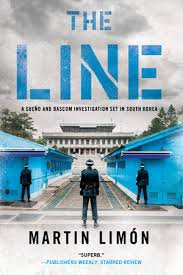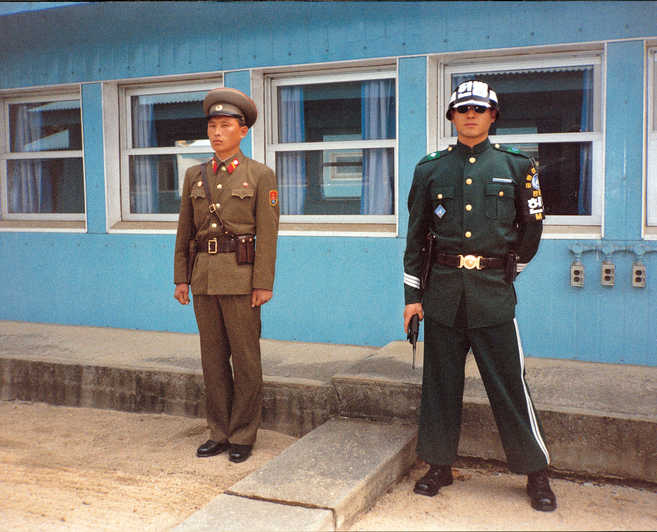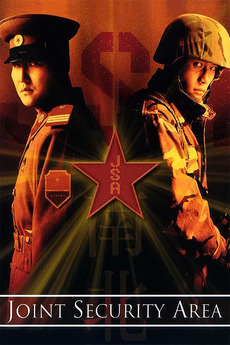GoodReads meta-data is 385 pages, rated 3.84 by 83 litizens.
Genre: krimi

Verdict: Too much shoot ‘em up, not enough think ‘em up.
Time: 1970s. Place: South Korea.
The US Eighth Army had about 60,000 personnel in South Korea at the time. So many people, so many of them bored, all of them with access to American goods at wholesale prices while across the street from each camp was a thriving blackmarket. Result, a lot of low level crime. Buy the whiskey, cigarettes, radios, washing machines cheap on the base; cross the street and sell them for a profit. Illegal but profitable.
Then again put 60,000 people together in small spaces leading regimented lives, and friction results. Crimes against persons follow. Then add the money in blackmarket transactions and the felony fires flicker.
By the terms of the alliance with South Korea, the Eighth Army polices itself with a Criminal Investigation Division, of which Sergeants George Sueño and Ernie Bascom are two investigators. They are both lifers and have been doing it a long time.* (This is the thirteen title in the series.) Their names and ways are known.
Both North Korea and South Korea are armed and dangerous. The piracy of the USS Pueblo in 1968 with the subsequent murder of one crewman in captivity, the crippling of two others, and the beating the rest into putty, is fresh in everyone’s mind. Ergo there are a lot of angry GIs who want revenge or at least who will make sure they are not next for the cement mixer.
The air along the Demilitarized Zone (DMZ) sizzles with tension. Talk about a misnomer, there was then no place on earth so militarised with a million armed men on each side of the line, many of them straining at the bit. It got worse when new North Korea artillery brought Seoul within range.
Bad as all that is, it is worse still in the Joint Security Area, that bubble inside the DMZ where those Blue Huts are with a Military Demarcation Line (MDL) dividing them in half.

JSA is an assignment no grunt wants because it is THE tripwire that (and all who dwell there) would be the first to go. Poof! In principle both sides have free movement within this small area, in practice everyone moves slowly and every move is watched with angry eyes.
Late one night Sueño and Bascom are roused from their cots in Seoul and ordered north to the JSA where they find the Lieutenant-Colonel in charge of the night shift standing guard over a dead body, that of a ROK soldier assigned to the JSA. Ten feet away stand a squad of NKs with AK-47s in ready. The corpse is sprawled over the MDL within the DMZ at JSA in the ROK. OK? The Chicken Colonel orders Sueño and Bascom to pull the body back to his side, while the NKs get twitchy. Sueño and Bascom do as ordered and begin their investigation into the murder of No-Go, as his friends called him, a ROK grunt who did warehouse duty in JSA.
What was No-Go doing in the middle of the night at the MDL? He should have been abed many yards away. Moreover, who split his skull with an entrenching tool?
The easy answer to the last question is the NKs. But why? They’ll do anything! Wait! If the NKs wanted him dead, they would have shot him. Period. No that answer is too pat, though some in the Eighth see it as another Pueblo incident. Meanwhile, life goes on, that is, crime goes on, and Sueñp and Bascom have other investigations to pursue.
They get mixed signals about continuing to investigate No-Go’s murder, but as always Sueño never knows when to quit, and Bascom goes along for the ride. Then the Eighth settles on No-Go’s buddy PFC Fusterman as the guilty party and begins to railroad him to clear the air. Convicting Fusterman will defuse tensions is the thinking of some. Others suppose the opposite, giving in the NKs a pass on this one will encourage other incidents. Back and forth goes the seesaw that Sueño and Bascom ride. It is pure McKinsey management pushing responsibility down to the lowest level, so when things go wrong the blame falls on those who have no choice in the matter.
It gets more complicated (too complicated for this reader) when a criminal gang horns into the plot. Sueño and Bascom drink a little less alcohol and bed fewer passers-by in this outing than in the earlier titles, but they still get beat up and shot at enough to get re-accredited as cartoon heroes. All that leaves this reader cold. As does Sueño’s repeated hormone attacks. Really Sueño zip it up for a while.
What is fascinating is the ways and means of investigating within the interstices of the Eighth Army. There is always a paper trail if one knows where to look and whom to ask, even when the perpetrator has tried to erase it, there are all those copies in triplicate times triplicate, and these two lifers can follow these snail trails. They know a lot of other lifer sergeants with whom to trade information. The sergeants’ network holds many an army together.
Further, Sueño has learned to speak Korean and his interactions with the locals are very well realised. He may be a ‘big nose’ but he knows and respects the ways of Koreans. No-Go had a family and Bascom and Sueño find out a lot through them. Fusterman had a family, too, and its members send a lawyer to defend him in the Court Martial. While feisty, she is an underdeveloped character in this telling, too easily misled while loudly proclaiming her savvy and contributing nothing to the story. Don’t blame her, she is written that way.
Inspector Kill and Officer Oh from the Korean National Police put in a welcome appearance. Kill is a dedicated man but he takes orders, and Oh remains enigmatic but a good friend to have in a tight corner. These two like nothing better than slamming up villains of any kind and sometimes it suits them to work through Sueño and Bascom.
Then there is the climatic firefight in the JSA which seemed gratuitous in the context of softly-softly, though it was noteworthy that one of the weapon wielders on the Sergeants’ side was a woman MP whose quick wit prevented a further disaster. The madness of Colonel Peel, another officer in the mix, is, well, madness. Though there is an implied complexity in the NK officer Kwon that might have been better brought to the surface when to save his family he refused to defect.
By the way, the fiction then as now is that the JSA is administered by the Neutral Nations Supervisory Commission, consisting of Czechoslovakia, Poland, Sweden, and Switzerland. Neutral? As if. These representatives are seldom seen and never heard.
Grant Limón license, because many strange things have happened in the unique place that is the JSA.

There is a superb Korean film, much more low key than this book, called ‘Joint Security Area’ (2000).

We saw it after we visited the JSA in 2004, and even in 2004 when things were not as tense as in the 1970s, the JSA crackled. At the time I was visiting professor at Korea University.
*Lifer means someone in for the maximum enlistment of twenty years. Not quite literally life but it most feel like is sometime.
